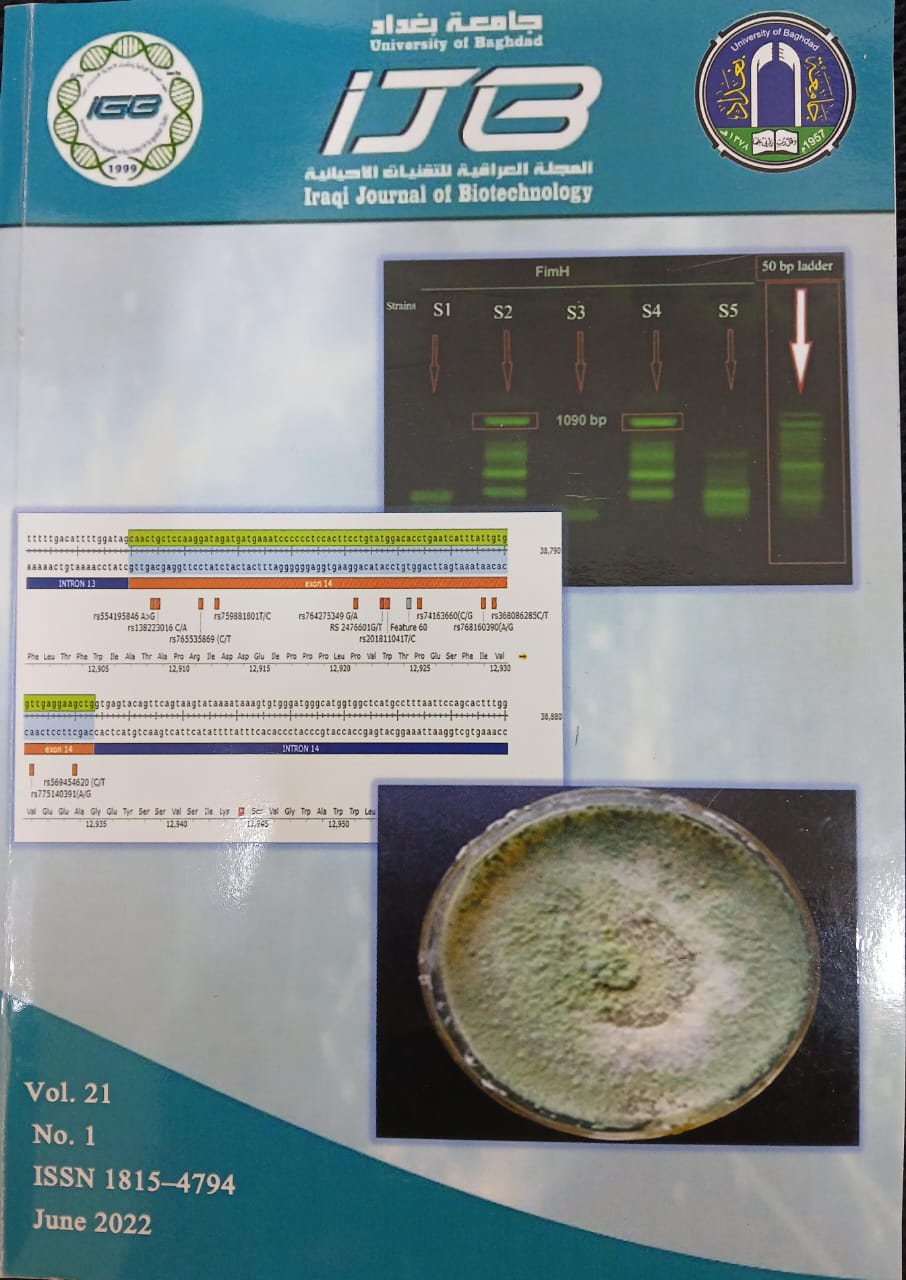Abstract
Resistance of the acute myeloid leukemia (AML) to chemotherapy is a major clinical
problem resulting in poor patients’ prognosis. One of the known multidrug resistance (MDR) mechanisms
in AML is the overexpression of efflux pumps belonging to the superfamily of ATP- Binding Cassette
(ABC) transporters such as ABCB1 and ABCG2. For this purpose, the present study investigated the gene
expression of these genes using real-time PCR. Blood samples of AML Iraqi patients were collected at
diagnosis and after induction therapy to investigate the correlation of ABC genes expression and response
to chemotherapy. Results reveled low expression of ABCB1 and ABCG2 at diagnosis when compared
with those after treatment and healthy subjects suggesting that the gene expression of these genes could
be considered as a marker of AML regression.
problem resulting in poor patients’ prognosis. One of the known multidrug resistance (MDR) mechanisms
in AML is the overexpression of efflux pumps belonging to the superfamily of ATP- Binding Cassette
(ABC) transporters such as ABCB1 and ABCG2. For this purpose, the present study investigated the gene
expression of these genes using real-time PCR. Blood samples of AML Iraqi patients were collected at
diagnosis and after induction therapy to investigate the correlation of ABC genes expression and response
to chemotherapy. Results reveled low expression of ABCB1 and ABCG2 at diagnosis when compared
with those after treatment and healthy subjects suggesting that the gene expression of these genes could
be considered as a marker of AML regression.
Keywords
Acute myeloid leukemia; ABCB1; ABCG2; Drug resistance
